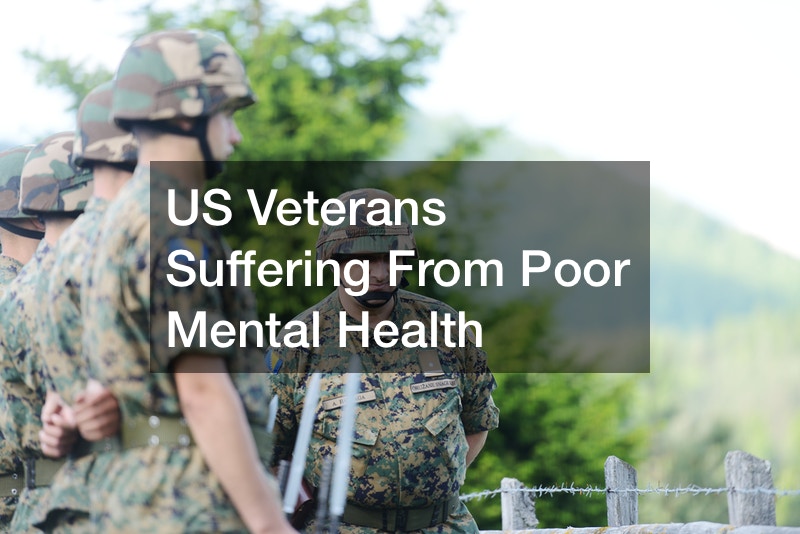
Veterans suffer from all types of mental illness, making them one of the most likely segments of the population to commit suicide. The Veterans Administration’s (VA) most recent findings, which came out in late 2020, showed that about 17 veterans committed suicide every day. It also showed a 2.4% decrease in suicides of veterans who recently got help for their mental illnesses from the VA. This small decrease shows that the best things for mental health are getting access to care, medication, a therapist, and being housed.
Types of Mental Illnesses Veterans Suffer With
There are not many jobs where you expect to die at work. Soldiers go through tremendous traumas even when they are no longer on the battlefield. No surprise, then, that veterans suffer from all of the mental illnesses common to Americans. The most common types of mental illnesses that veterans suffer from are post-traumatic stress disorder (PTSD), substance abuse, and traumatic brain injuries. Unfortunately, many veterans are homeless, which adds to their dependence on alcohol or drugs in order to get through the strain and pain of being on the street. Housing and Urban Development (HUD) estimates that there were over 37,000 homeless veterans in 2020.
Access to Care
Although therapy and medication help deter suicide, getting access to behavioral health and substance abuse is difficult. Multiple studies have come out in recent years showing that veterans wanting help from the VA were not able to get it. The pandemic made things worse as many VA offices shut down.

Thanks to recent scandals at VA hospitals all over the U.S., Americans are finally paying attention to veterans. Many of those who are up in arms about negligent healthcare and cancer screenings, however, do not realize that veterans’ problems are even worse. At least 22 veterans commit suicide every day, according to CNN. Survivors of abuse and military trauma are — simply put — not receiving enough attention. Mental health programs are lacking and need to change.
We Need Longer Mental Health Care Problems, Veterans Lawyers Say

As of it stands, the government extends no questions asked mental health care and post traumatic stress disorder help for five years. Experts agree this isn’t enough. In fact, researchers and veterans advocates point out that it can take anywhere from seven to 12 years for post-traumatic stress disorder symptoms to truly manifest. For that reason, programs that last only five years are inefficient — and may not be enough to help veterans contend with long-term mental health problems.
Alternatives to Traditional Talk Therapy Offer Hope

Although talk therapy can be wildly successful, it doesn’t necessarily work for everyone — and, in some cases, talk therapy on its own may not be enough. Researchers are exploring more ways to curb symptoms. Current studies range from distraction therapy to brain implants that emit harmless electric signals. British researchers are researching how relatively simple tasks — such as playing Tetris — can help treat PTSD. The brain implants, on the other hand, work by monitoring activity and emitting small electric signals to correct it, if necessary, NPR reports. “Focusing on a highly engaging visual-spatial task, such as playing video games, may significantly reduce the occurrence of flashbacks, the mental images concerning the trauma that intrude on the sufferer afterward,” LiveScience explains.
Veterans are committing suicide at alarming rates. If research and programs are not meeting your needs — or the needs of your loved ones — talk to veterans lawyers about your options. Helpful research also found here.
